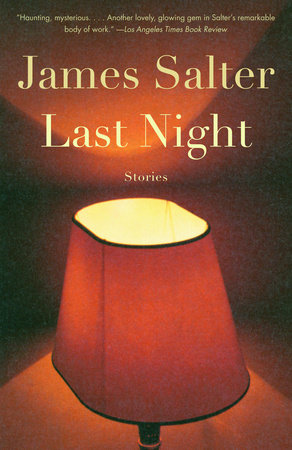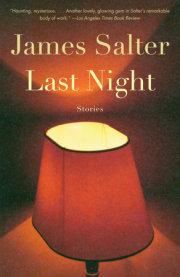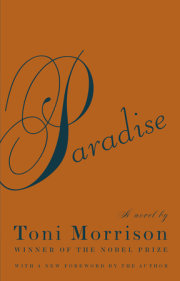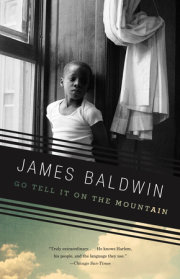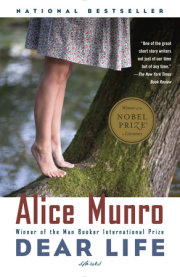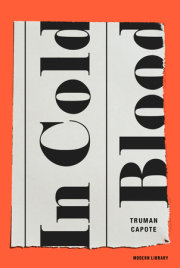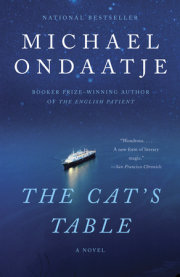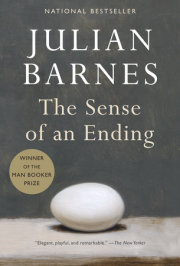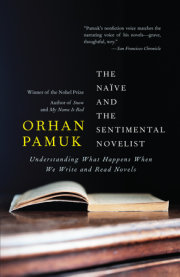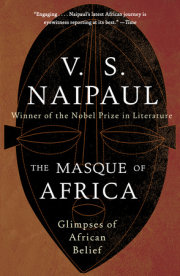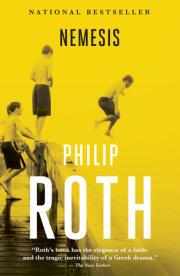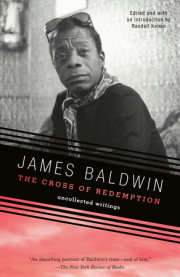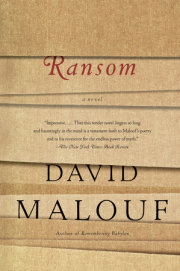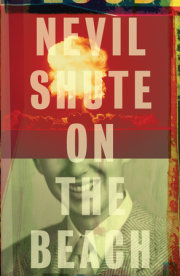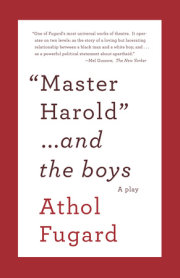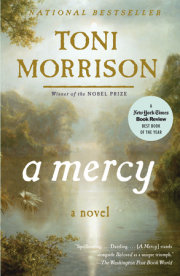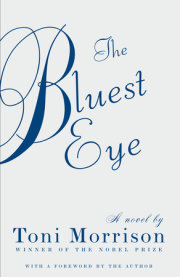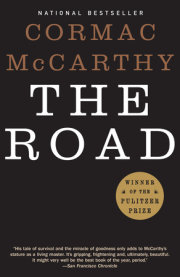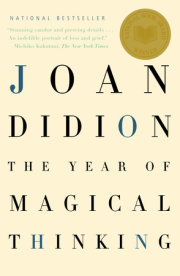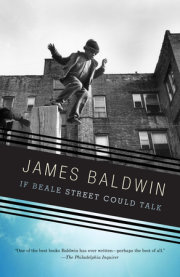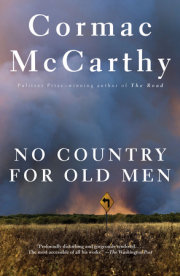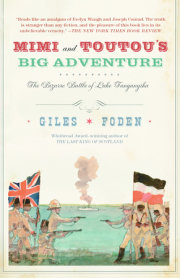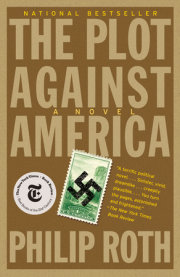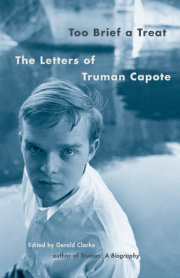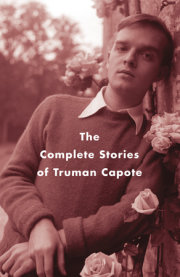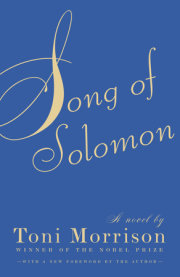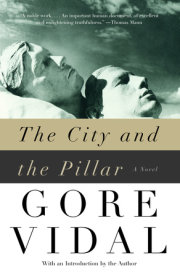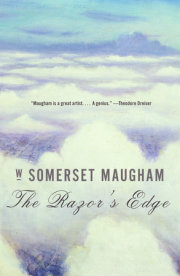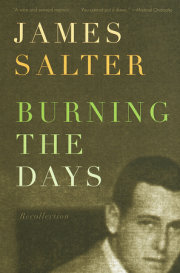Winner of the Donald Windham-Sandy M. Campbell Literature Prize
From a writer whose every book is a literary event, a superbly accomplished work of fiction. Last Night is a spellbinding collection of stories about passion—by turns fiery and subdued, destructive and redemptive, alluring and devastating.
In ten powerful stories, Salter portrays men and women in their most intimate moments. A book dealer faces the truth about his life—as it is and never will be again—when he is visited unexpectedly by his brash former girlfriend. A lonely married woman, after a disturbing encounter with a drunken poet at a dinner party, finds herself irresistibly drawn to his animal surrogate, a huge tawny-eyed dog. A lover of poetry must come to terms with his wife’s request to give up what may be his most treasured relationship. And in the title story, already hailed by Frank Conroy as “a masterpiece, clearly and without question,” a translator, tormented by an agonizing sense of inevitability, assists in his wife’s suicide even as he performs a last betrayal.
A haunting symphony of desire, memory, and loss—from a writer whose assured style and emotional insight make him one of our most compelling voices at work today.
“James Salter is the author of a relatively small body of prose of uncommon subtlety, intelligence, and beauty. Especially in his deftly rendered shorter fiction, Salter suggests [such] European sensibilities as Proust, Colette, Woolf, Nabokov, Marguerite Duras . . . His elliptical, impressionistic prose suggests the films of Antonioni and Bertolucci . . . Rare in the fiction of a male writer of his generation, Salter’s work reveals virtually no interest in politics and social issues . . . His characters inhabit not history but time; not a snarled world of politics and events but a pastoral world forever beckoning, and forever elusive . . . [Salter’s work] is variegated yet uniformly eloquent . . . He writes with sympathy and compassion . . . His characters strike us as painfully real, vulnerable . . . [Salter’s] stories unfold with dreamlike fluidity in an atmosphere of shadows and indistinct forms, like watercolors in a dark palette. As Salter’s novels are comprised of exquisite set pieces, often self-contained, so his short stories suggest novellas or novels compressed into a few pages . . . It’ s a measure of James Salter’s writerly gifts that one wishes each of his stories longer . . . Fascinating, lyric, memorable, poignant, harrowing, powerful.” —Joyce Carol Oates, New York Review of Books
“Salter’s prose [is] priceless . . . A Sport and a Pastime was and still is an erotic masterpiece . . . [In Light Years,] set in the Hamptons before the Hamptons became the Hamptons, Salter’s wonderfully limpid descriptions of autumnal long Island landscapes cause the novel to transcend its yuppie milieu. Salter knows all Chekhov’s tricks . . . [Last Night] is as elegant as anything Salter has written and his similes are to die for.” —David Bowman, Salon.com
“Life is not a pie. A writer can’t serve up tidy ‘slices of’ life, measured and premixed. Life is a volatile mess, and no one portrays that mess better than James Salter . . . The 10 stories in his new collection showcase his skill in composing revelations from the ephemera of moments. Salter has an inimitable way of entering a story not at the beginning, but in the middle—not just late for the dinner but midscene, often midconversation, midlife—with characters clinging to their pasts, struggling to make sense of their passions and failures . . . Most of these stories involve a spectacular betrayal . . . He excels at describing solitary states. His characters drift in thought, maybe with a stiff drink in hand . . . His prose is almost painterly, giving a Vermeer-like sense of stillness and privacy . . . [But] despite their meditative surface, each of these stories has an actual plot, an event or crisis aching to be resolved . . . All the stories in Last Night are superb, but the title story is the tautest and most memorable . . . Despite its shocking plot twist, the story maintains the exacting, calm narrative voice that has distinguished all of Salter’s work. His characters may be haunted by death and disappointment, but Salter never judges them, never even pretends to have them neatly pegged. He lets them stay elliptical, in shadow. As one says: ‘You think you know someone, you think because you have dinner with them or play cards, but you really don’t. It’s always a surprise. You know nothing.’” —Lisa Zeidner, New York Times Book Review
“Unpredictably brilliant . . . Beautiful . . . Less verbose than Updike, less terse than Hemingway—two writers with whom he has frequently been compared—Salter’s limpid prose is perfectly suited to his subject matter; the dramatic potential human beings have for mucking up their comfortable lives. The men and women he describes are invariably shown at their most vulnerable, just before and after the person they cherish most leaves them or is discarded. This leitmotif of loves’ labours lost and the hurt it causes all involved is expertly leavened with humour by Salter . . . In his hands, a story as seemingly dark as ‘Last Night’—in which a desperately ill woman prepares to commit suicide, with the help of her husband—becomes a mini-masterpiece of human error and comic timing . . . Salter is still writing taboo-breaking stories. Their aim [is] to prick through pomposity to the person beneath . . . Brazen and honest.” —Tobias Grey, Financial Times (UK)
“For almost three thousand years, Western literature has derived much of its spark from the theme of passionate sexual love. Judging by Last Night, a new collection of short stories from American fiction writer James Salter, the end is not in sight . . . In these stories, men show themselves fools for love. Some women experience the same hunger, but don’t quite walk wide-eyed into disaster the way their male counterparts do. They feel, as do the men, that passion is life-giving; perhaps they sense a little more clearly that passion also destroys. It destroys because of the infidelity of the beloved, or because a peaceful, domestic life cannot accommodate it, or because time wears down the body. All these things happen in Salter’s stories . . . He writes superbly. Short stories are often a balancing act between narrative drive and scenes or details that compel the reader to stop and reflect on their content, because they reveal what a critic once called the natural symbolism of reality. This small ‘s’ symbolism needs to be deciphered for the meaning of the story to unfold in the mind of the reader. In the case of Salter, the process is not a dreary exercise but part of the vivid life of the tale. The natural symbolism really is natural . . . And of course Salter observes the first law of the short story, which is to cut sentences to the bone and not necessarily spell things out . . . The title story will be in anthologies for years to come. It packs a punch you didn’t think short stories delivered anymore.” —Philip Marchand, Toronto Star
“A+ . . . These ten nuanced stories are marvelously taut and seamless, crafted in majestically simple prose. As if the package of his skillful writing wasn’t pretty enough, each story, surprisingly, surprises—a sure sign of Salter’s extraordinary gifts . . . Just as ‘Shakespeare wrote what oft was thought but ne’er so well expressed,’ Salter masterfully limns the psyche of a corner of the contemporary U.S. . . . At dinner parties, in summer homes, and over drinks in the city, claws of quietly desperate, as well as not so desperate, passion rake over the ostensibly comfortable lives of these characters . . . The subtlety is where a substantial portion of Salter’s power lies: like a poet, he creates an atmosphere, alludes to several sensibilities within the same story, and these transport the reader on a bubble of authenticity . . . Betrayal, love, lust, lost opportunity–these are the oft told stories that acquire humble if searing magic when filtered through Salter . . . Each of the ten is exquisite in both form and content. Read ’em and weep.” —Michelle Murray, Edge.com
“Stunning . . . James Salter is an extraordinary writer, probably among the very best we have. And anyone who has the least bit of interest in stories or in what it means to be human should be thrilled that a new book by him is appearing. So, too, should anyone who loves a well-made sentences: he write the kind of sentences that Hemingway aspired to . . . In [Last Night] Salter faces the timeless themes that obsessed the Greek dramatists and Shakespeare: love and its vicissitudes, the shattering and insistent power of desire, the encroachments of age, the inevitability of death, the betrayals—small and large—that human relations are fraught with. The characters in Last Night might have stepped out of the pages of John Cheever, John Updike, Louis Auchincloss, A. R. Gurney, or Louis Begley . . . [One story] ends with a moment that will break the heart . . . Salter’s magic with the language can take one’s breath away. [His] prose reminds me of the story of Michelangelo who simply chipped away from the block of marble all that was not David. His sentences are miracles of concision and compression, giving us, often in a phrase, the essential of a life or of a situation . . . The artistry with which his stories are made and the gravitas with which he confronts the human enterprise are bracing and enlivening. One reads Last Night with a kind of astonishment and a joy in the possibilities that literature can still possess.” —Fred Volkmer, The Southampton Press
“Despite Salter’s (deserved) position among the upper reaches of contemporary authors of literature, he’s also something else: extremely accessible. [He] has a miraculous ability to draw a complete character with just a few words . . . This book is a perfect introduction to Salter’s style of economical writing. And the issues he tackles—sex, betrayal, aging, death—will resonate with every reader.” —Kevin Walker, Tampa Tribune
“Sinfully intriguing . . . Spectacular . . . Whenever two or more fiction writers congregate in a bar to talk shop, the conversation always rolls around to James Salter. For numerous reasons, all of which are dazzlingly illustrated in Last Night, Salter seems to be the contemporary fiction writer whom other practitioners of the art hold in highest esteem . . . After finishing the final [story], you have the sensation of having dined out at a fine restaurant, with whisky on the front end and a great bottle of wine to accompany the main course, followed by a rich dessert and the kind of cognac you know you can’ t afford . . . His characters [are] thoroughly human . . . Few writers have ever conveyed the ecstasy of illicit romance as convincingly . . . Salter’s best work—and the stories in this new collection certainly merit inclusion—is filled with sharp edges and gleaming surfaces that quickly catch the eye and beguile. But Salter is, in the end, a poet of those dark corners where our unvetted emotions play themselves out.” —Steve Yarbrough, The Oregonian
“Remarkable . . . All of Salter’s writing [flows] from a vein of deep understanding. Indeed, few authors have better comprehended the egos and insecurities of men who lust after greatness, be they pilots or playboys, mountain climbers or downhill racers—or merely husbands and fathers, navigating the perilous terrain of la vie quotidienne . . . Salter’s trademark style [is] terse, yet evocative—words chosen with Depression-minded thrift, sentences as precise as dress gray pleats . . . The openness of Salter’s writing about sex and sexual relationships is hard to overvalue [and] such candor continues to pervade Last Night . . . The stories impress for their brutal efficiency—for Salter’s ability, over eight or ten pages, to boil down years of shared experience between characters into a single moment of revelation that, in turn, seems the key to a heretofore indecipherable cryptogram of human emotions.” —Scott Foundas, LA Weekly
“If you put John Updike’s short fiction on the Atkins diet for a month, you might end up with something like James Salter’ s lean and powerful new collection, Last Night. These stories unfold in the dark flower of relationships one petal at a time. As in Updike’s world, Salter’s men hold their cards close and keep their women at bay. Old girlfriends, current paramours and the dreams caught up with sexual freedom haunt the husbands of this book. These stories speak to human frailty without fear, and they hint at the way regret lingers around the faithful like fog to a streetlamp.” —John Freeman, Philadelphia Weekly
“Terrific fiction, written by an important writer . . . All of these stories share Salter’s exquisite prose, his talent for flitting gracefully between points of view, his uncanny ability to sum up a character in a single detail . . . Salter’s people are smart, witty, libidinous and romantic, likely to experience their most important personal epiphanies at dinner parties or in fashionable restaurants. And almost all of the stories revolve around relationships in one way or another: faltering marriages, missed opportunities and betrayals, past loves resurfacing in unexpected ways. More than that, each of these stories has a secret hidden beneath a seemingly innocuous veneer, a moment at which Salter reveals that everything is not as it seems, [a moment in which] the story pivots on its axis and becomes something altogether richer and more complex . . . In an ideal world, his books would leap from shelf to cash register . . . These stories should be read and savored.” —Michael Knight, Washington Post Book World
“The ragged tumult of intimacy has long been the province of James Salter, writer of the exquisitely appropriate sentence; the excruciatingly penetrating short story; the impressionistic, incandescent novel. In A Sport and a Pastime, Light Years (arguably one of the best novels ever) and Solo Faces, he has taken the art of fiction into a realm all his own; in Burning the Days and Gods of Tin, he has made nonfiction high art. In his latest, Last Night, neither his style nor his content flags. He writes with intensity and serious intent, illuminating those places we try to hide, never letting us off the hook . . . Salter is a master at capturing that moment when matters go completely and unexpectedly awry. He then mines that moment for all its beauty, horror, poignancy, love, lust, loss, grief and confusion, and renders it in unforgettable prose.” —Valerie Ryan, Seattle Times
“James Salter is America’s best little-known author . . . A few of the stories [in Last Night] read like small novels . . . small worlds that interconnect and enrich one another, an arrangement of scenes that create complete and very satisfying tableaux . . . Sophisticated, refreshing . . . Salter’s prose is both fluid and precise, and nothing about it is superfluous or flashy. This is a writer who has mastered the art of evoking a lot with an economy of words. Several of the stories in Last Night are reminiscent of those of John Cheever. It’s not only because of the settings (New York City, a seaside town on the East Coast) and the subject matter (chronically conflicted and disenchanted well-off people), but also the flawless cadence of the narrative, the elegance of the style and the way the stories are filled with emotions without ever becoming sentimental. Who knows why Salter’s books haven’t reached as wide an audience as they deserve? But do yourself a favor and discover this author. His latest collection of stories makes for a wonderful introduction to his fiction.” —Jean Charbonneau, The Plain Dealer
“Salter’s prose inspires revelations.” —Peter Stewart, The New York Post
“One of the best, most adult collections to appear in a long while . . . The feelings of Mr. Salter’s characters are lean and instantaneous. They deliver minimalist dialog that is more Hollywood than noir . . . Tragedy, then, is not the slow burn of the unfortunate but the sudden tumble of the rich. In several stories, it is a quick, indelible dinner conversation. Even Mr. Salter’s prose works by this puncture aesthetic . . . Perhaps this is why so many writers admire Mr. Salter: because he seems to do what he does in a single sentence. But it takes an entire story to smooth out the tablecloth; only then can he stain it.” —Benjamin Lytal, New York Sun
“In his new collection of 10 short stories, James Salter displays the kind of precise mastery of language that has led him to be described as a ‘writer’s writer.’ However, these explorations of love, dreams, disappointment and betrayal show that his insight into universal themes is more than a match for his literary prowess: This stunning collection confirms that he is also undoubtedly a reader’s writer. Salter captures the essence of a moment or character using only its sparest elements. Like light striking water at just the right angle, his language makes these stories shimmer with life . . . He limns the subtle layers of relationships that Hollywood tends to forget; the moments that reach deeper into the heart than histrionic epiphanies and sunset endings because they acknowledge the shadowy illogic of human emotions . . . Salter’s characters suffer the unglamorous defeats and disappointments of love. [He] avoids the black-and-white morality of wrong vs. wronged. Instead, he leads us through the inexplicable geography of emotions that lie in between. He navigates the territory with exceptional insight and skill: Bitter or silent, awkward or serene—or as clear and bright as morning light—Salter writes it just the way it is.” —Jessica Slater, Rocky Mountain News
“Splendid . . . Perfectly constructed and marvelously accurate prose portraits . . . Salter gives up the vital facts about his characters slowly, almost on a need-to-know basis. The job of telling what his people are really like is accomplished by peeling off layer after layer of their public face. It is not until the end of the story that we see the full man or woman and often the portrait is much different than what we anticipated . . . [The title story is] a masterpiece . . . Salter’s touch is always sure and his words precise. [Each story] rewards us many times over.” —Roger Harris, Newark Star-Ledger
“Salter, who publishes sparely, is one of those writers whose work you wait for over the years faithfully, full of hope and expectation. Salter’s sentences alone create a certain breathlessness . . . The way Salter heaps up phrases one atop the other, the sharp attachment to disappointment of the well-off and want-to-be well-off. He gives us an America rich and lustrous and poor enough in spirit to break your heart three times over. As in the story ‘My Lord You’ in which a well-off woman in the fashionable district of New York’s Long Island becomes fascinated by an unruly alcoholic poet, trespasses through the man’ s empty house, and starts undressing before her husband arrives to rescue her. Other characters in other stories find themselves in similar states of distress and psychological undress . . . Eden, in Salter’s fiction about our fallen world, has always already been lost. His characters drift, drink, stumble, sink, tempt others to sin, and sin themselves. Yet a memory of an old green time persists, if only in his prose.” —Alan Cheuse, NPR “All Things Considered”
“Haunting, mysterious . . . [Salter] is steely nerved, precise, distanced in a way that makes the surface of his work gleam. Despite that cool distance, Salter’s work tends to have an elegiac tone. Set among a sophisticated circle in New York, the Hamptons and Hollywood, Last Night should be X-rated, not for its eroticism, although there is that, but to forewarn the uninitiated of its scalding truths about the deceptions and devastations of love. The title story [is] astonishing, lean, heartbreaking, with deftly flickering points of view . . . Salter’ s stories leave the reader with a sort of afterglow. His work is distinguished by the purity of his prose. A sometime screenwriter, he has a remarkable ease with shifts in perspective, place and time, and a masterful sense of plot, showing us quick glimpses of his characters, snatches of dialogue, saving the most daunting and potent revelation until the end. But there is something beyond the purity of language and the skill. Each story has at its heart an underlying sensibility that treasures each moment of beauty, each burning day. Last Night is another lovely, glowing gem in Salter’ s remarkable body of work.” —Jane Ciabattari, Los Angeles Times Book Review
“Masterful . . . Exquisite . . . Salter’s hard-boiled, masculine sensibility evokes not just Hemingway but masters of dissolute disillusionment such as Richard Yates, John Cheever and Frederick Exley. You can practically smell the cigarette smoke and hear the booze-scratched timbre of Salter’s characters’ voices . . . The title story, ‘Last Night,’ is a pitch-perfect, disturbing tale [that] explores the subtleties of how we betray our dead in part just by surviving and moving on. With each story, Salter creates a fresh scenario that pulls the reader in . . . Much of the drama lies beyond the confines of what appears on the page . . . Timeless . . . In this era of chatter and distraction, James Salter’s carefully honed stories offer a welcome precision.” —Heller McAlpin, San Francisco Chronicle
“One hesitates to use the term writer’s writer . . . But James Salter is a writer’s writer, and his latest story collection shows why. Spare, deceptively simple prose like this is hard to come by, and if you read it with a sharp mind, you’ll pick up the unexpected curveballs that leave many of Salter’s colleagues and acolytes swooning . . . Salter captures his characters in a few short scenes, but each story packs in a lifetime of real feeling. Quiet and genteel though they may be, these people are capable of wicked betrayal, and they aren’t jaded to its consequences . . . [Here] we can feel the seductive power of words.” —Ken Foster, Time Out New York
“Stories of memory, love, war and the passage of time, how we change and how we don’t change, whether there is any connection between our young selves and our older selves . . . You don’t just meet his characters as they’re living now, but you learn how they looked and lived before . . . The stories are compact, intimate, some born from a single sentence . . . A collection preoccupied with time and legacy.” —Hillel Italie, Associated Press
“More than 15 years have passed since James Salter published Dusk, his first collection of beautifully crafted stories. With Last Night he gives us 10 more pieces of short fiction that are difficult to read without becoming agitated with the possibilities of American prose and the beauty and pathetic torpors of American life . . . The maestro constantly stirs you as you read, with the force of his language and the news it brings about our own experience, and the experiences of others. The sentences alone create a certain breathlessness in the attentive reader . . . The way Salter heaps up stunning phrases one atop the other, the sharp attachment to disappointment of the well-off and the want-to-be well-off—he gives us an America to break your heart three times over . . . Paradise, in Salter’s fiction, has always already been lost. His characters drift, drink, stumble, sink, tempt others to sin and sin themselves. Yet the memory of a greener time persists, if only in his prose. While reading it, how happy one is.” —Alan Cheuse, Chicago Tribune
“James Salter is one of a handful of writers whose name is uniformly uttered in reverence by fellow writers . . . Last Night is clearly the work of a writer with the perspective of years, the long view. The stories often focus upon those pivotal moments that, in retrospect, shape a life–missed chances, wrong paths taken, that one opportunity that a character did or didn’t take . . . Mysterious and evocative, and utterly beautiful in its language . . . Salter can toss off sentences [that] stop you cold in their lyric precision seemingly at will, two or three on every page . . . What also comes through Salter’s fiction is wisdom, earned from a well-lived life.” —Dan Pope, Hartford Courant
“We sometimes come late to treasure we should have found long ago. For me, it is the writing of James Salter . . . Last Night has all of the trademark precision and melody he is known for . . . Elegant . . . In the Salter story, the table will be set, there will be wide doors with curved brass handles, deep armchairs, and Vuillard prints on the walls. The bed linens will be turned back and someone will be in tears . . . Salter is such a paradox to read. On the one hand, you have these pages of pliant and mellifluous prose, as fine and as sumptuous as a seven-course French dinner, hinting at life as comely as those meals. And then you have his characters in all their splendid shambles.” —Mark Shechner, The Buffalo News
“Perhaps this collection of Salter’s artful yet definitely embraceable short stories will shake him free of his reputation as a writer’s writer. There is nothing wrong, of course, with being someone other writers like to read, but in Salter’ s case a writer’s writer is also someone anyone who appreciates good writing would enjoy. There are 10 stories here, and not one fails to showcase his superior talent in the form: his prose style, which is subtle but not abstruse, and his stories’ points, which are also subtle, but never vague. He deals in the broad subject of relationships, but . . . finds corners of peculiarity to illuminate. The story ‘Comet’ [is a] masterpiece. The title story is a tour de force about assisted suicide gone wrong–for several reasons. . . Salter’s genius is most apparent in the effectiveness of his short and direct dialogue, which he uses not only to reflect real people talking but also to distill character to sheer essence.” —Brad Hooper, Booklist
“Matchless narrative economy and surgically precise prose are the identifying marks of this exemplary gathering of ten stories by veteran author Salter . . . Sex, betrayal, aging and death are dominant themes, whether in a night of shared palaver among manless ‘girl’ friends that ends in a plaintive cry for attention; a vignette showing a charismatic, unstable male friend’s effect on a complacent marriage; or the tale of a married bookseller’s resistance to the promiscuous former lover who challenges him to choose between ‘Life and a kind of pretend life.’ Salter’s great gift is his ability to trace the arc of an entire life, or several shared or separated lives, with a masterly fusion of crisp dialogue and penetrating summary statement . . . D.H. Lawrence might have devised the haunting symbolism that pervades [the story] ‘My Lord You’ . . . ‘Platinum’ reads like a combination of Edith Wharton and John O’Hara . . . All Salter’ s themes merge memorably in the concluding (title) story, a compact symphony of mutual devotion, human frailty and lingering regret. One of the masters displays his wares, to stunning effect.” —Kirkus Reviews
“Compelling . . . Teetering marriages, collapsing relationships and other calamities of the heart drive these 10 compact, unsettling stories by respected writer Salter. The title story is especially impressive—when Walter Such and his seriously ill wife, Marit, agree that he will assist in her suicide, Marit insists that Susanna, a mutual friend, come over to keep them company in her final moments. Nothing goes as planned, however, and Walter’s double betrayal of his wife ushers in the haunting conclusion . . . Stirring stories [that are] worthy additions to a formidable body of work.” —Publishers Weekly
“As nearly perfect as any American fiction I know.” —Reynolds Price
“Salter is a writer who particularly rewards those for whom reading is an intense pleasure. He is among the very few North American writers all of whose work I want to read, whose as-yet-unpublished books I wait for impatiently.” —Susan Sontag
“Salter is unique among our very best writers. He writes of a certain class, the well-dressed and well-to-do, the stylish, sometimes those in the Hamptons and Park Avenue orbit. And yet, apart from the relatively long list of veterans who became writers, he is one who entered the service as an officer and completed more than half a career in that capacity . . . In Last Night, all of Mr. Salter’s skills are in evidence, in particular his famous concision and clarity, an elegance of style enhanced, not diminished, by its lack of adornment. An act of copulation or two is rendered with such loving care as to knock your own memories clear out of your head. And no living novelist conjures a scene quite the way he does, with so few words . . . He recently turned 80, but there’s nothing wintry about the stories. They’re abloom with desire and betrayal; the sap runs full bore . . . Mr. Salter’s shelf at the bookstore is bowed by esteem, not volume . . . ‘You want a book to be something you have to pick up again. You simply must return to it,’ he said, describing precisely the quality of his own fiction.” —Baylis Greene, The East Hampton Star
“Last Night is a book for anyone who’s ever loved, lusted, or longed. This mature collection of 10 stories is sexy and somber at the same time . . . A shrewd and unsentimental analysis of the middle-aged heart in the glorious apex of all its yearnings. Yet Last Night transcends the subject of age . . . Through their desires, [these characters] stumble into Joycean aperçus, and are either humbled or elevated into the true meaning of their lives . . . The title story is an unforgettable masterpiece that could rank with Anton Chekhov’s ‘The Lady With the Dog’ as one of the great stories of contemporary literature . . . . A sobering touchstone of the present time, though not as dark as it first appears, and wiser than it at first seems . . . Salter astonishes us and is as unpredictable as life itself.”—Helen Mitsios, Philadelphia Inquirer

